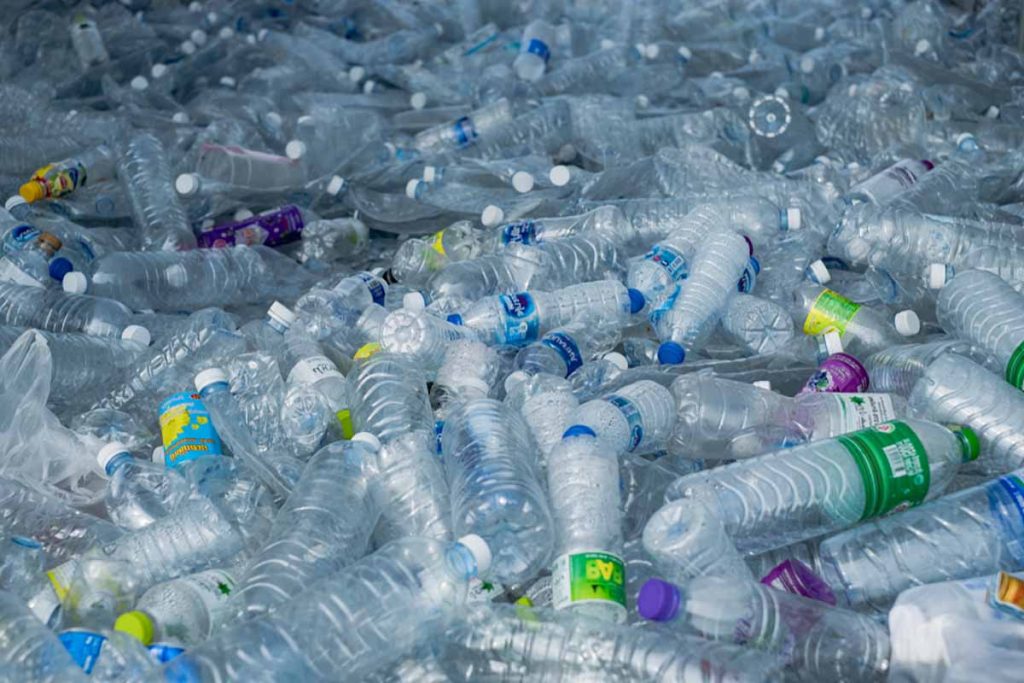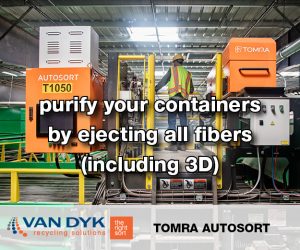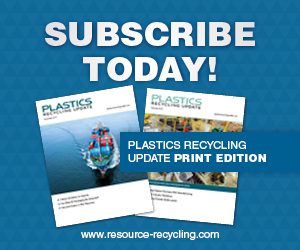
A life-cycle analysis found that using recycled PET resin in place of virgin resin can lead to a 40% reduction in process and transportation energy. | GenViewFinder/Shutterstock
The National Association for PET Container Resources (NAPCOR) says using recycled PET offers a 60% greenhouse gas reduction over virgin material, one of several recent findings the group added to its PET environmental impact resources.
NAPCOR this month announced the addition of the new information, which comes from a comprehensive “cradle-to-resin life cycle analysis” of PET completed by consulting firm Franklin Associates. The findings appear to be roughly in line with previous calculations in a 2018 Franklin Associates analysis of recycled resins that was prepared for the Association of Plastic Recyclers.
The latest study examined “energy and resource use, water consumption, solid waste, and environmental impacts” associated with various steps in the life cycle of PET. These steps include raw material extraction for purified terephthalic acid (PTA) and ethylene glycol (EG) production, as well as PET resin manufacturing.
NAPCOR used the findings of the study, which was finalized in March 2020, combined with the previous Franklin Associates report, to compile NAPCOR’s sustainability facts for recycled versus virgin PET.
“A reduction of 60% in greenhouse gas emissions may be achieved by replacing a unit of [virgin] PET with RPET,” NAPCOR stated in a release. “When using RPET in place of [virgin] PET, a 75% lower total energy demand may be achieved, and 40% less process and transportation energy is expended.”
The industry group also recently published a progress report on PET thermoform recycling, noting an increase in recovery over the past five years in particular. According to the Oct. 26 report, reclaimers in the U.S. and Canada recycled 139 million pounds of PET thermoforms in 2018, a 60% increase over 2017.
Additionally, the number of processing outlets for these materials continues to grow, according to the report.
“Most reclaimers that purchase curbside PET bales in the US and Canada will accept, and process for next use, some percentage of thermoforms in their PET bottle bales,” NAPCOR wrote.
More stories about PET
- Bottle cap design: No need to ‘reinvent the wheel’
- Coke bottler’s switch to clear PET provides lessons learned
- Alpek closing North Carolina PET plant



